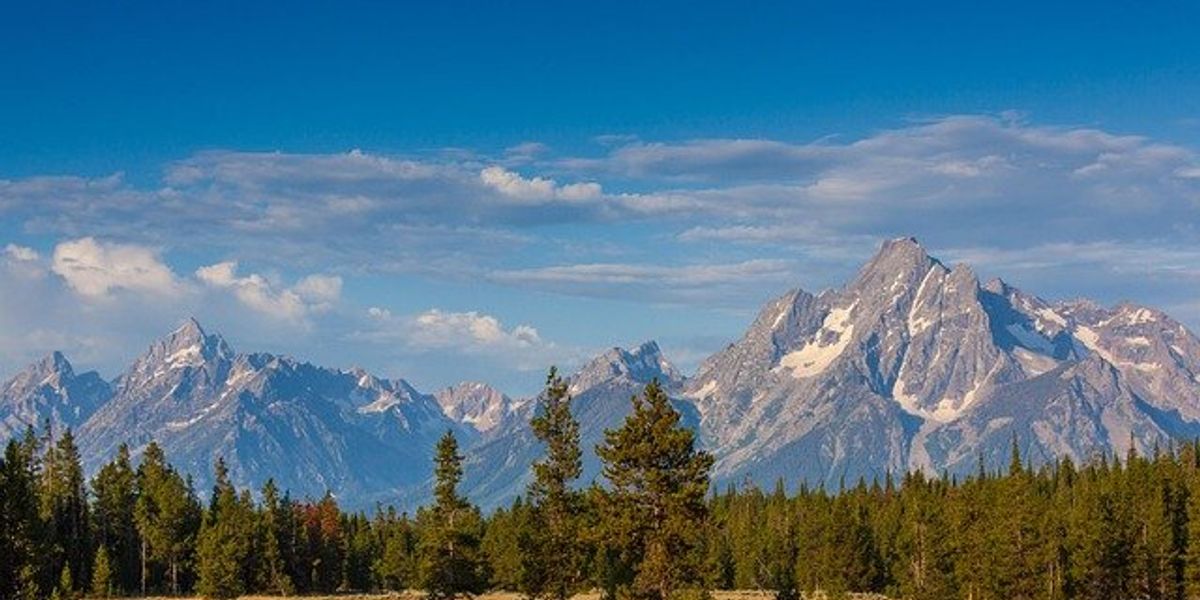mining
Ecuador’s forest win sets global precedent for nature’s legal rights
The Los Cedros forest in Ecuador’s Andes has become a global symbol of how granting nature legal rights can protect biodiversity from industrial threats like mining.
In short:
- The Los Cedros forest, one of the world’s most biodiverse places, was saved from mining by a landmark court ruling that recognized nature’s legal rights.
- The ruling builds on Ecuador’s 2008 constitution, which grants nature rights, setting a precedent for protecting ecosystems worldwide.
- Challenges remain in implementing these protections, with concerns about illegal activities and nearby industrial threats.
Key quote:
“There was no case before this, there was no precedent. It was a case of science winning over extractive industries.”
— Josef DeCoux, conservationist
Why this matters:
This ruling is part of a global movement to give legal rights to nature, offering new tools to protect ecosystems essential to human health and survival, especially in the face of biodiversity loss and climate change. Read more: Could the Ohio River have rights? A movement to grant rights to the environment tests the power of local control.
Mining will remain dominant in the Pan Amazon for decades
Governments in Brazil, Peru and Ecuador are increasingly dependent on extractive industries like mining to support local economies, despite growing opposition from environmentalists and social advocates.
In short:
- The Pan Amazon region relies heavily on mining, especially in areas like Brazil's Carajás Mining District, where the industry dominates local economies.
- Regulatory challenges include balancing corporate interests with the rights of Indigenous communities through Free, Prior and Informed Consent (FPIC).
- Environmental, Social and Governance (ESG) standards are shaping the future of mining, but enforcement remains uneven across public and private companies.
Key quote:
“The full impact of FPIC on the regulatory process is still unfolding.”
— Timothy J. Killeen, author
Why this matters:
Mining's expansion threatens ecosystems and Indigenous rights. Long-term economic dependence on these industries complicates efforts to regulate environmental and social impacts, posing risks for the region's future sustainability.
Biden administration considers price support for US minerals to counter China
The Biden administration is contemplating federal price supports for U.S. critical minerals projects to counter the impact of cheap Chinese imports that threaten domestic production.
In short:
- The Energy Department may establish a price floor for U.S.-produced critical minerals to secure domestic supply chains.
- Chinese oversupply has caused mineral prices to plummet, endangering U.S. projects that received Biden administration grants.
- The proposal seeks to protect U.S. projects from foreign market manipulation, potentially requiring Congressional approval.
Key quote:
“If we move forward on anything like this, the intent would be to give the nudge that is needed to set off the flywheel, versus create a permanent subsidy or cushion for a particular sector or company going forward.”
— Anonymous Energy Department official
Why this matters:
China’s dominance in the critical minerals market threatens the U.S.’s ability to produce essential materials for clean energy technologies. Ensuring a stable domestic supply chain is vital for national security and the clean energy transition.
Apache group petitions Supreme Court to halt copper mine on sacred land
Apache Stronghold members are traveling across the U.S. to gather support as they petition the Supreme Court to block a copper mine on Arizona land sacred to their tribe.
In short:
- Apache Stronghold opposes a copper mine planned for Oak Flat, a sacred site in Arizona, arguing it violates their religious freedom.
- The group lost its appeal in lower courts but hopes the Supreme Court will hear their case, claiming the mine threatens their spiritual practices.
- The planned mine could meet 25% of U.S. copper demand but would devastate the environment, leaving a massive crater and depleting local water resources.
Key quote:
“We thought it was an Apache case. But no, it became a Native American case. It became a state case. It’s a country case. It’s a human being case.”
— Wendsler Nosie Sr., leader of Apache Stronghold.
Why this matters:
The case highlights the ongoing conflict between resource extraction and Indigenous rights, raising concerns about environmental destruction and the erosion of sacred cultural practices.
Related EHN coverage:
Federal judge halts Arizona lithium drilling amid tribal concerns
A federal judge temporarily stopped exploratory lithium drilling in Arizona after the Hualapai Tribe argued it would harm sacred lands.
In short:
- The Hualapai Tribe and environmental groups sued to stop drilling near sacred springs in northwestern Arizona.
- The tribe argues the Bureau of Land Management's approval violated laws protecting historic and cultural sites.
- A hearing on a longer-term injunction is scheduled for September 17 in Phoenix.
Key quote:
“Like other tribal nations who for centuries have stewarded the lands across this country, the Hualapai people are under siege by mining interests trying to make a buck off destroying their cultural heritage.”
— Laura Berglan, Earthjustice lawyer
Why this matters:
The case highlights the conflict between green energy initiatives and the preservation of Indigenous cultural sites, raising questions about the balance between environmental progress and respecting sacred lands.
Related:
Chinese investors attempt covert takeover of Australian mining company
A long-standing struggle between Northern Minerals and Chinese investors reveals the global battle over rare-earth minerals as countries seek to reduce reliance on China.
In short:
- Northern Minerals, an Australian mining company, discovered possible proxy purchases by Chinese investor Wu Tao, who had been blocked from increasing his stake due to national security concerns.
- The Australian government ordered Wu Tao’s company and four others to sell their shares, but the companies have not yet complied with the divestment order.
- The case highlights the broader effort by Western countries to secure rare-earth supplies independent of China's dominance.
Key quote:
“When in the history of the global economy has a monopolist willingly given up their position in the market?”
— Amanda Lacaze, CEO of Lynas
Why this matters:
Control over rare-earth minerals is critical as these materials are essential for green technology and defense. China’s dominance in this sector poses significant risks for global supply chains.
Related: Ruth Greenspan Bell: Wealth and the climate dilemma
Rio Tinto faces growing opposition to Serbian lithium mine
Tensions are escalating over Rio Tinto’s plans for a major lithium mine in Serbia, with locals fearing environmental destruction and geopolitical manipulation.
In short:
- Rio Tinto’s stalled lithium project in Serbia has sparked widespread protests due to environmental concerns and political controversies.
- The Serbian government initially canceled the project but reversed course under EU pressure, reigniting public anger.
- Critics accuse the West of using the mine to pull Serbia away from Russia while sacrificing local environmental safety.
Key quote:
“I don’t need green cars. I need green apples and green grass.”
— Angela Rojovic, protester.
Why this matters:
The conflict highlights the tension between global environmental goals and local concerns. It also underscores the geopolitical tug-of-war over critical resources like lithium.
Related: In push to mine for minerals, clean energy advocates ask what going green really means



















